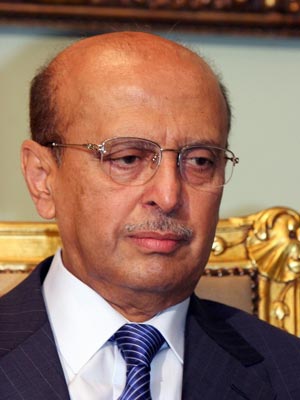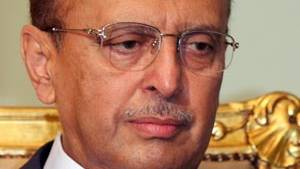Yemen rejects U.S. intervention in Qaeda fight
Source: news.asiaone.com
Yemen, hunting al Qaeda within its borders, believes its own security forces must fight militants on its territory and rejects any direct U.S. intervention, the foreign minister said.Yemen, the poorest Arab country, was thrust into the foreground of the U.S.-led war against Islamist militants after a Yemen-based wing of al Qaeda said it was behind a Christmas Day attempt to bomb a U.S.-bound plane.
 Asked by CNN whether Yemen would accept direct U.S. intervention, Foreign Minister Abubakr al-Qirbi, left, said: "No, I don't think we will accept that. I think the U.S., as well, have learned from Afghanistan and Iraq and other places that direct intervention can be self-defeating."
Asked by CNN whether Yemen would accept direct U.S. intervention, Foreign Minister Abubakr al-Qirbi, left, said: "No, I don't think we will accept that. I think the U.S., as well, have learned from Afghanistan and Iraq and other places that direct intervention can be self-defeating.""We think this is the priority and the responsibility of our security forces and the army,'" Qirbi told the U.S. news channel.
Yemeni authorities launched an operation this week to root out al Qaeda militants who they said were behind threats that forced Western embassies to close.
The raid, which killed two militants, allayed U.S. concerns and allowing its heavily fortified mission to reopen.
"What we need from the United States and other partners is to build our capability to provide us with the technical know-how, with the equipment, with the intelligence information and with the firepower," Qirbi said.
Yemen has sent troops to take part in a campaign against al Qaeda in three provinces over the past four days. One security source said forces had set up extra checkpoints on main roads.
Yemeni forces surrounded a suspected a Qaeda regional leader near the capital on Wednesday, and have captured eight rank-and-file al Qaeda militants in recent days, including three wounded in Monday's raid, security sources said.
Multiple Fronts
Placed strategically on the Arabian Peninsula's southern rim, Yemen is trying to fight a threat from resurgent al Qaeda fighters while a Shi'ite revolt rages in the north and separatist sentiment simmers in the south.
"I think our thought was that maybe we should spare al Qaeda in the last year because of the confrontation in the south and with the Houthis (rebels). But al Qaeda took advantage of that,"Qirbi said, adding that the militant network had tried to make inroads with northern rebels and southern separatists.
"Then they went even further to arrange for some suicidal attacks in Sanaa. And this is why it was important that our security forces should take action against them," he added.
The West and Saudi Arabia fear al Qaeda will take advantage of Yemen's instability to spread its operations to the neighbouring kingdom, the world's biggest oil exporter, and beyond.
Yemen is a small oil producer. Yemen, with shrinking oil reserves, a water crisis and fast-growing population, has stepped up security on its coast to block militants from reaching its shores from Somalia. Qirbi said there were about 200 to 300 al Qaeda operatives in Yemen.
"How many of them are going to entertain terrorist attacks is something that is obviously of concern to us. This is why we always stress the importance of cooperation with United States and other countries in the region," he said.
Yemeni officials acknowledge the need for U.S. help with counter-terrorism, but say the government also lacks resources to tackle the poverty that widens al Qaeda's recruiting pool.
Defence and counter-terrorism officials say Washington has been quietly supplying military equipment, intelligence and training to Yemen to root out suspected al Qaeda hide-outs.
Civil war and lawlessness have turned Yemen into an alternative base for al Qaeda, which U.S. officials say has been largely pushed out of Afghanistan and is under military pressure from the Pakistani army in bordering tribal areas.
Article from: AsiaOneNews.com
Video from: YouTube.com






















